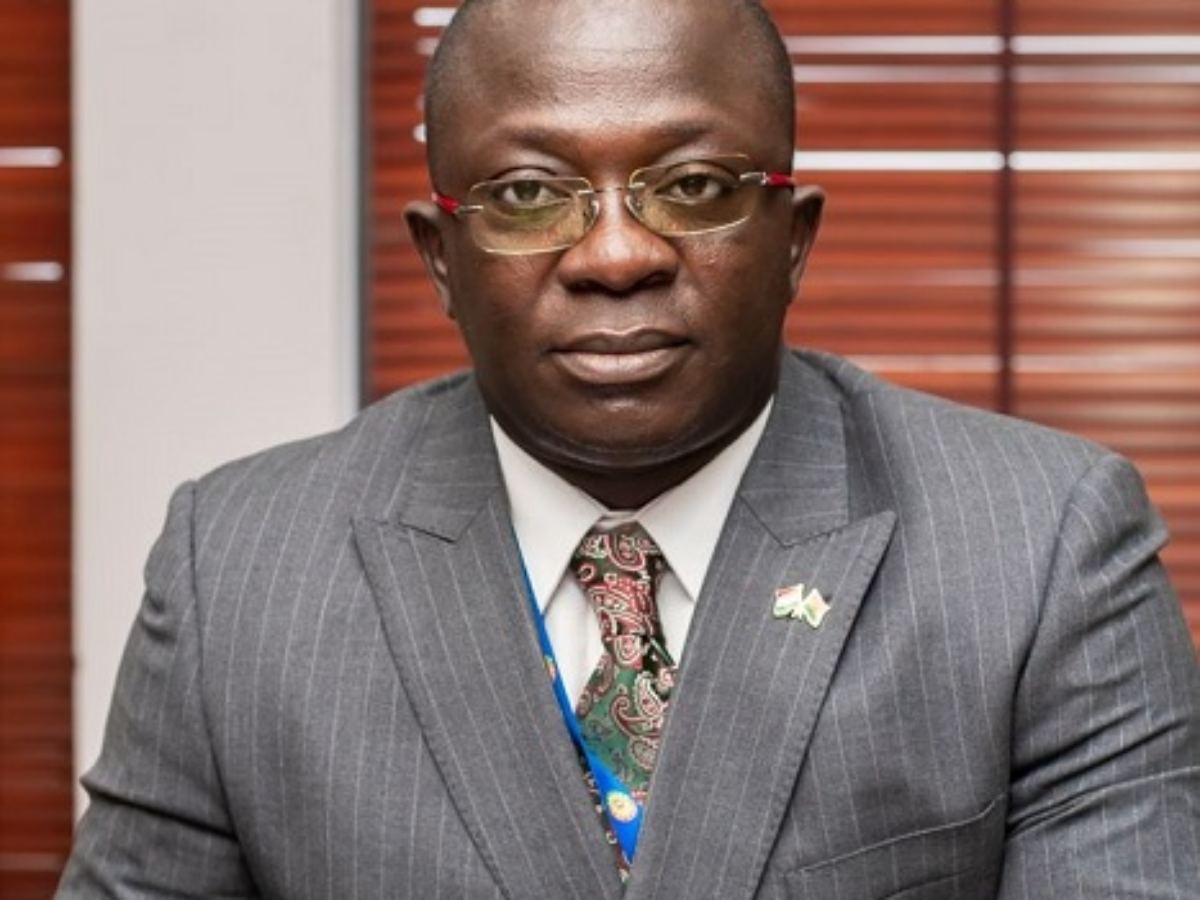
Minister for Food and Agriculture, Dr. Bryan Acheampong
Minister for Food and Agriculture, Bryan Acheampong has outlined measures taken by his outfit to support livelihood of farmers and ensure adequacy of food supply due to what he described as a situational crisis confronting farmers in some eight regions of the country.
According to the minister, the regions which include the Northern, Upper East, North East, Savannah, Upper West, Bono, Bono East and the Oti regions are currently experiencing dry spells that have led to the disruption of crop production.
Speaking at a press briefing organized by the Ministry of Information, Mr. Bryan Acheampong disclosed that, the lack of rain for the past two months has severely impacted the planting season in many of the farming areas.
The minister of Food and Agriculture further indicated that out of the eight regions, the Northern region is the worst with the Upper East region being the least affected. He said some of the notable communities affected in the Upper East region include Gaboliga, Boya and Ankpaliga.
Mr. Bryan Acheampong added that with no rains for two months, leading up to the planting season, crops that were sown in anticipation of the rains have been left struggling without sufficient moisture and there are fears of low yields and potential crop failures.
He said, his outfit is keenly monitoring the situation in the southern regions which are also experiencing some rainfall disruptions delaying the onset of the southern sector minor planting season.
The Member of Parliament for Abetifi stressed that the livelihoods, investments and incomes of over 980,000, cultivating an estimated 1.8 million hectares are at risk. Mr. Acheampong also underscored the rippling effect and the immense pressure the situation places on farmers, value chain actors and the country’s food system.
Outlining the steps his ministry is taking to support farmer’s livelihoods and to ensure that the situation does not recur in the future, Bryan Acheampong said the Ministry of Food and Agriculture has designed and rolled out a five-year masterplan for food security and resilience in August 2023. The master plan targets self-sufficiency in production of 10 crops and poultry over the period.
The Finance Minister, Dr. Amin Adam on the other hand underscored the importance of Agriculture and its benefits to the country and further stressed the need to get the situation salvaged before it gets out of hand.
“One of the major contributors to our growth which is agriculture is now facing the kind of challenges that we are seeing. It simply means that our growth trajectory is in danger. Economic growth is in danger. We can also look at it from the perspective of pricing, we have seen for some time now inflation trending down from about 54% in 2022 to about 20% in June this year and our expectation is that we end the year with an inflation rate of 15%. I am optimistic that we will make significant progress.” He stressed.
According to him, the recent hike in inflation was dominated by food inflation coupled with importation of food products for the market.
“One other way the economy may be affected is from the perspective of Forex Exchange. People are complaining the cedi is getting weaker against the dollar, rate is higher against the cedi, and so, if you are going to bring in more food to support what we already have, you need to back it with forex and therefore the demand for the dollar was in the increase relative to what we anticipated” the Minister added.
The Finance Minister said, although government is responding to the situation, its response may not entirely neutralize the problem but the response will help stabilize the situation until the country gets out of the crisis.
He stressed that government is seeking to raise about five hundred million dollars equivalent to eight billion Ghana cedis to fund the crisis response programme. This, he said is done when the country’s buffers are almost depleted. However, government is doing everything possible to raise the money for the programme to be funded.
Mr. Adam said, so far, government through the budget has been able to secure hundred and sixty million dollars from the contingency fund. He also indicated that they are doing budget realignment to reallocate some funds that were originally meant for other purposes to address the crisis.
The Finance Minister further disclosed that government is also mobilizing support from multilaterals, bilaterals, international development partners to help Ghana address the crisis.


